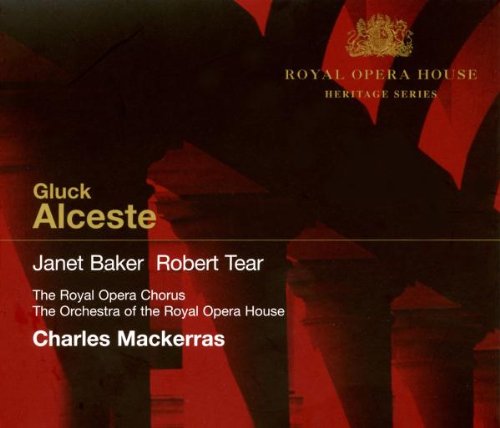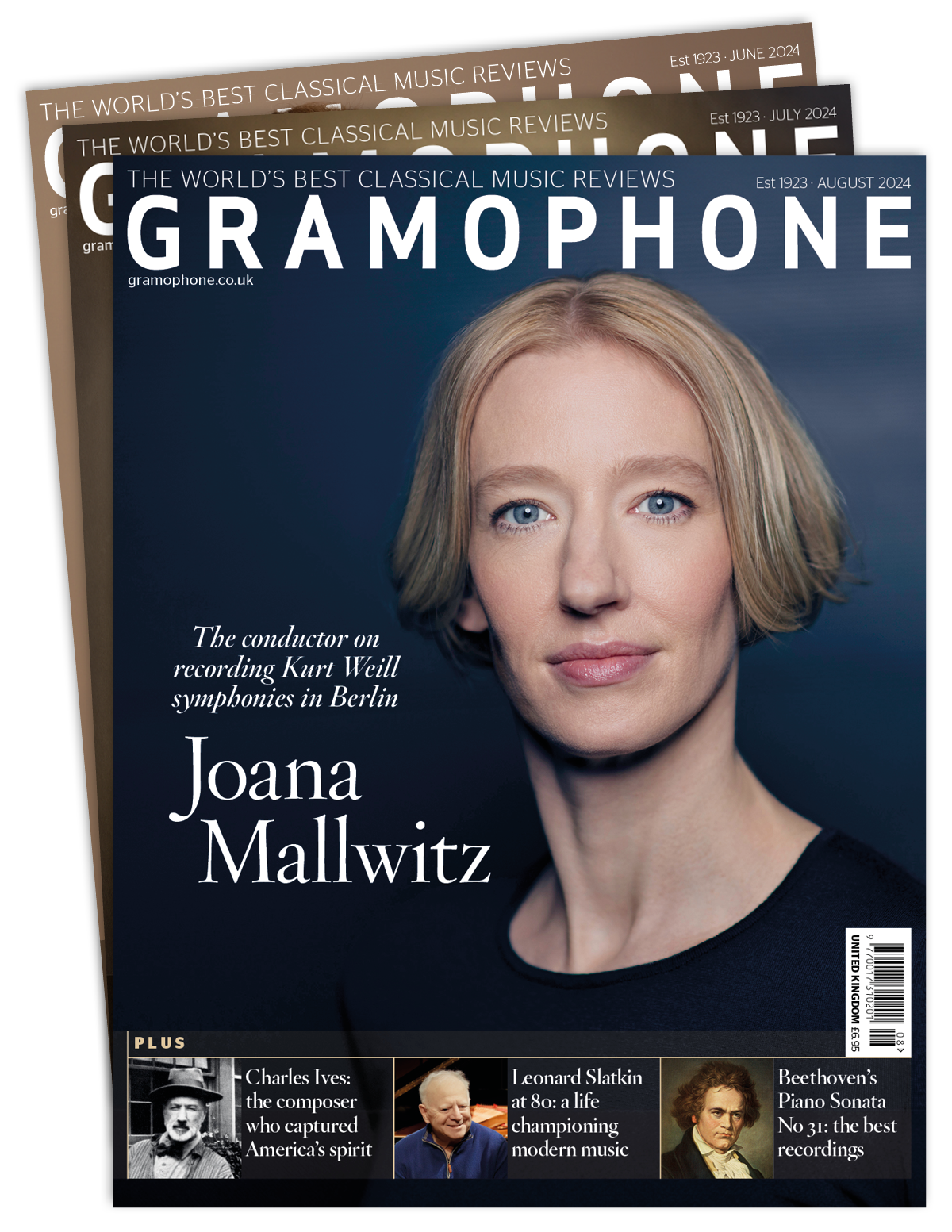Gluck Alceste
Not ideal as a performance but Baker’s glorious farewell makes this a must
View record and artist detailsRecord and Artist Details
Composer or Director: Christoph Gluck
Genre:
Opera
Label: Royal Opera
Magazine Review Date: 10/2008
Media Format: CD or Download
Media Runtime: 0
Mastering:
Stereo
Catalogue Number: ROHS010

Tracks:
| Composition | Artist Credit |
|---|---|
| Alceste |
Christoph Gluck, Composer
Charles Mackerras, Conductor Christoph Gluck, Composer Janet Baker, Alcestis, Mezzo soprano Robert Tear, Admetus, Tenor Royal Opera House Chorus, Covent Garden Royal Opera House Orchestra, Covent Garden |
Author: Richard Lawrence
It is wonderful to have her deeply moving portrayal made available after all these years – if only it were on DVD! – and the presence of Robert Tear and John Shirley-Quirk takes one back to memorable performances of Bach and Britten, not to mention Rameau’s Hippolyte et Aricie (Decca, 5/96 – nla). The sombre overture sets the scene: the orchestra under Charles Mackerras is admirable, trombones well to the fore, the unnecessary harpsichord a minor irritatant. In the opening number some wobbly sopranos obtrude from time to time, but in general the choral contribution is excellent, albeit in rather occluded sound. However, the grand sweep of Gluck’s design, the chorus’s “Ô Dieux! Qu’allons nous devenir?” and “Ô malheureuse Admète!” framing Alcestis’ solos, is weakened by the omission of a whole section. Other regrettable cuts include the powerful restatement of the chorus at the end of Act 2 and chunks of the final Chaconne.
Even more unsettling is the frequency with which, by Mackerras’s sleight of hand, Alcestis’ music abruptly shifts down a tone or a semitone. The booklet article praises Dame Janet for her singing of “the repeated ascents from sustained A flat to A natural”, but that is not what we hear. This is a pity, because it vitiates Gluck’s tonal scheme, and it’s when she is straining at the top of her range that Baker is at her most thrilling. The air in question is certainly gripping; but “Divinités du Styx”, sung at pitch, is stupendous.
In the scene where Admetus learns that Alcestis is sacrificing herself for him, the dramatic force that Baker and Tear bring to the accompanied recitative is exemplary. Make no mistake: my gripes notwithstanding, this recording should be in every opera lover’s collection. But we still need a complete version, on period instruments, with a soprano heroine. Are you paying attention, Messrs Christie, McCreesh, Minkowski? Richard Lawrence
Explore the world’s largest classical music catalogue on Apple Music Classical.
Included with an Apple Music subscription. Download now.

Gramophone Digital Club
- Digital Edition
- Digital Archive
- Reviews Database
- Full website access
From £8.75 / month
Subscribe
Gramophone Full Club
- Print Edition
- Digital Edition
- Digital Archive
- Reviews Database
- Full website access
From £11.00 / month
Subscribe
If you are a library, university or other organisation that would be interested in an institutional subscription to Gramophone please click here for further information.




